“We’ve Been Here. We Will Continue to Be Here.” A Conversation With Indigenous Women Rising
/ Internet Link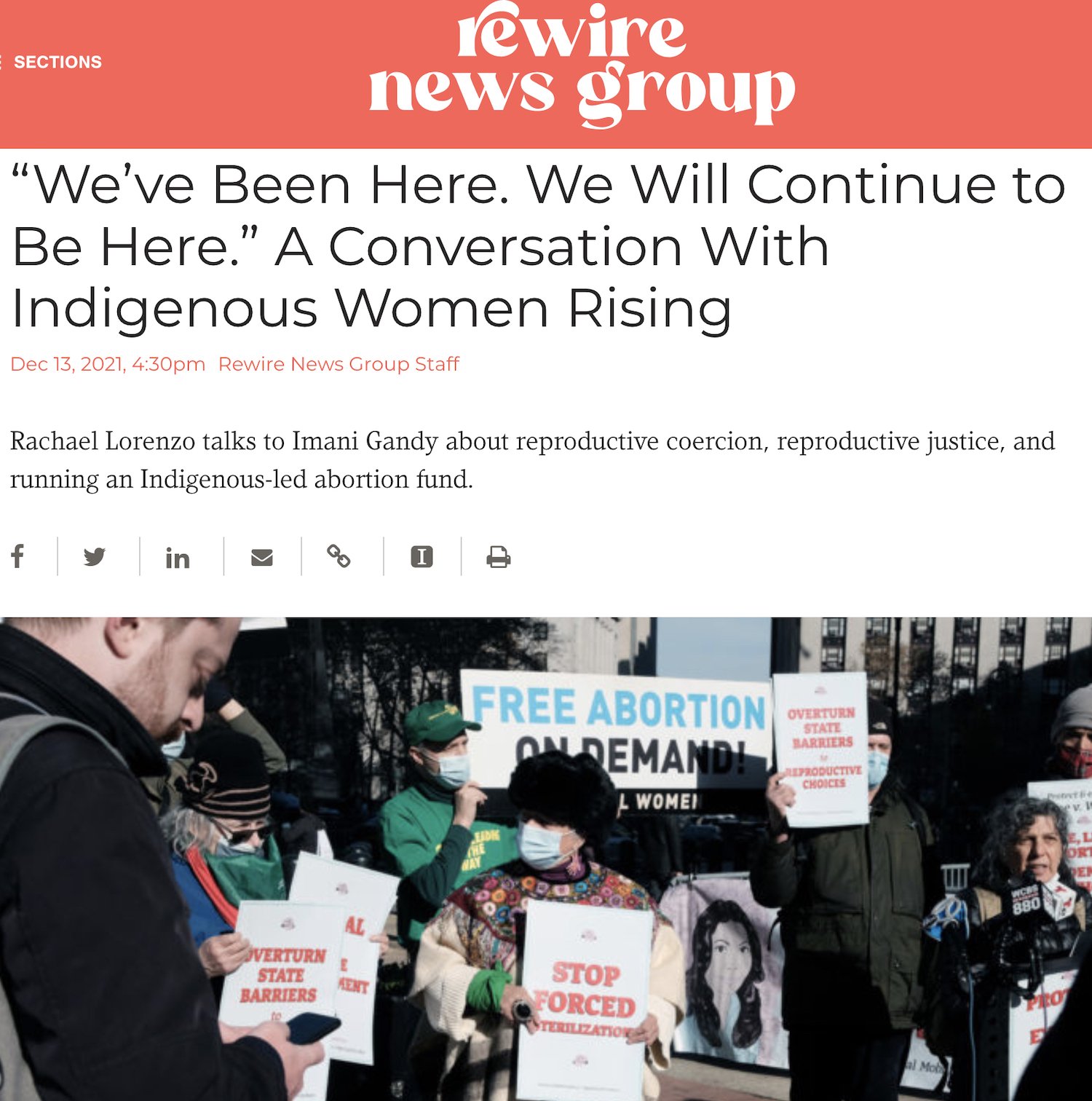
“We’ve Been Here. We Will Continue to Be Here.” A Conversation With Indigenous Women Rising
By Rewire News Staff - Rewire News Group
December 13, 2021
“Rachael Lorenzo is a survivor of reproductive coercion. The co-founder of Indigenous Women Rising sat down with Rewire News Group‘s senior editor of law and policy, Imani Gandy, for a conversation on the intersection of race and and reproductive rights. It’s part of Rewire News Group‘s new Instagram series Repro Changemakers.
Here’s a brief transcript of the conversation.
Rachael Lorenzo: LARC coercion is where medical providers, whether in collaboration with law enforcement or a court system, or not, just on their own because of medical providers who are mostly white and their value judgements on how we live our lives as Indigenous people and can also be applied to Black folks and immigrant folks, anyone who’s not white. And so being pressured into having a LARC inserted, whether it’s an IUD or Nexplanon, the little match stick that goes in your arm, and once it’s in there, refusal to take it out. And be told like, “Oh, all of these adverse side effects that you’re experiencing are actually normal. That’s a sign that it’s working.”
Very short story: I had an IUD inserted after I had my first kid, the copper IUD. And for ten months I bled the entire time. And I went to the ER three times in the city and was told that they would not take it out because it was working. I went to Indian Health Services, they didn’t even have anyone trained to take out an IUD. When I finally got it taken out on the fifth try, the bleeding stopped almost immediately. And so that’s an example that a lot of my cousins and aunties have gone through with essentially this long-acting reversible contraception, which can stay in our bodies for years at a time, impacting our ability to make our own decisions about when we want to have children or even just trying to get relief from some of the adverse side effects that might come with having a LARC.”
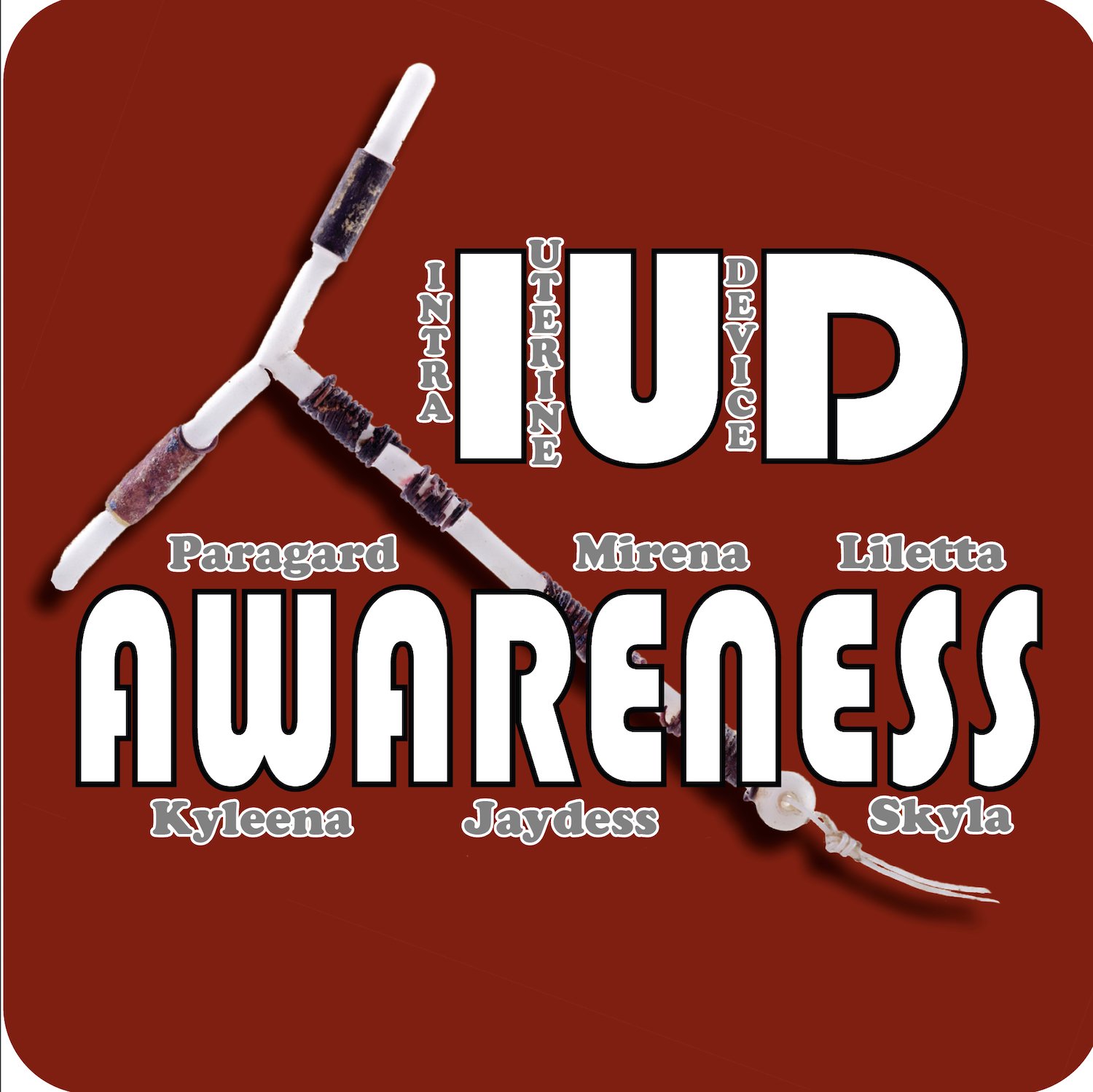




























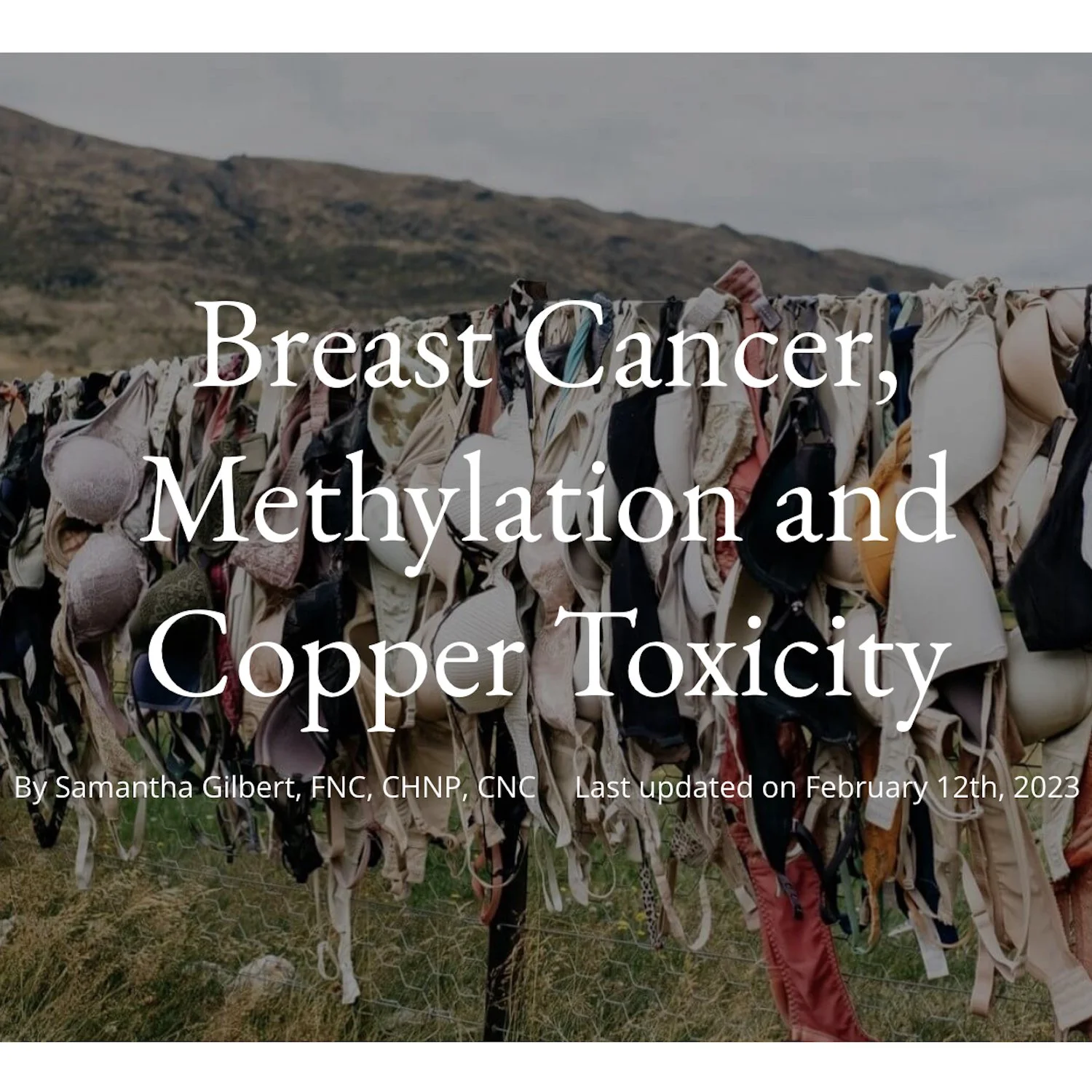






















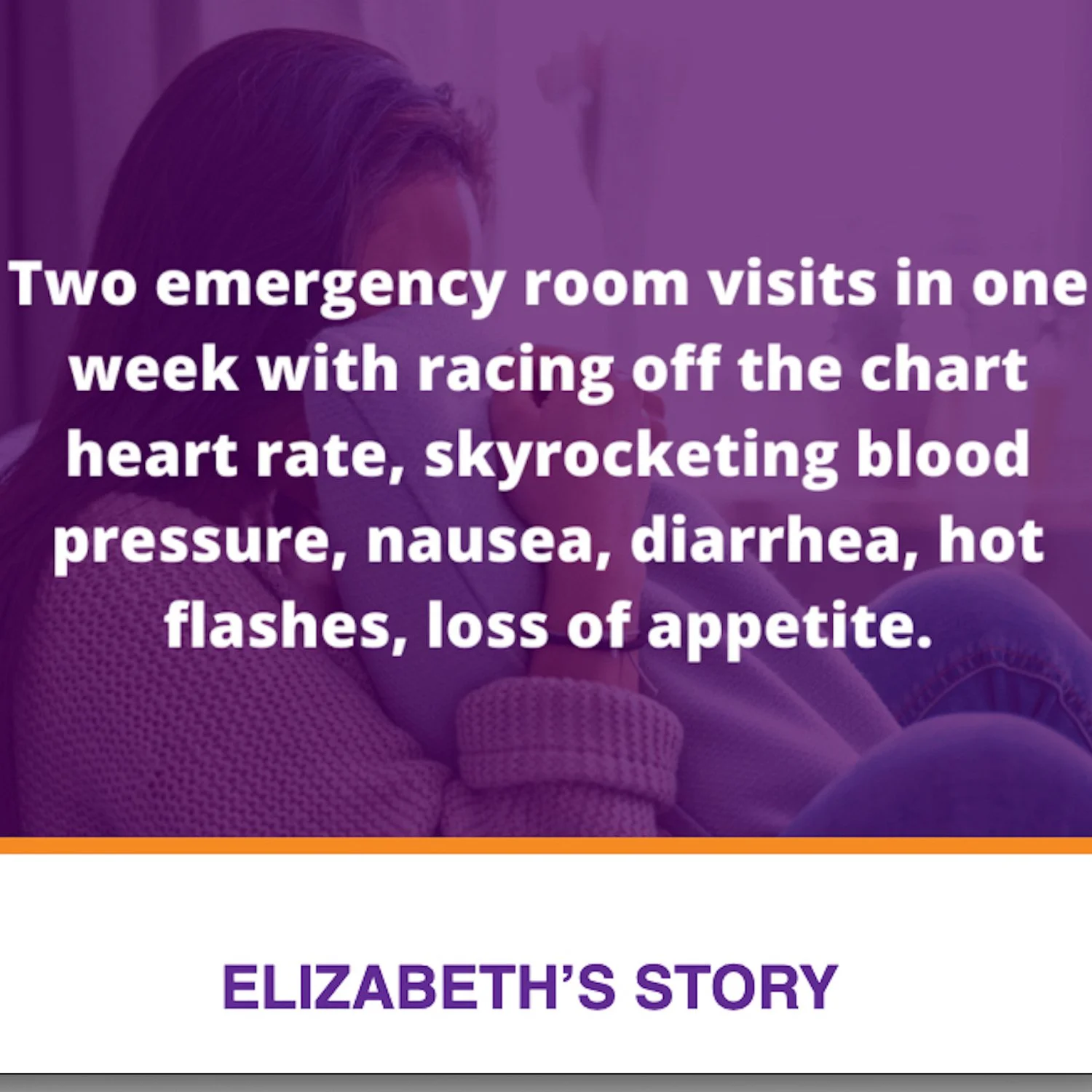









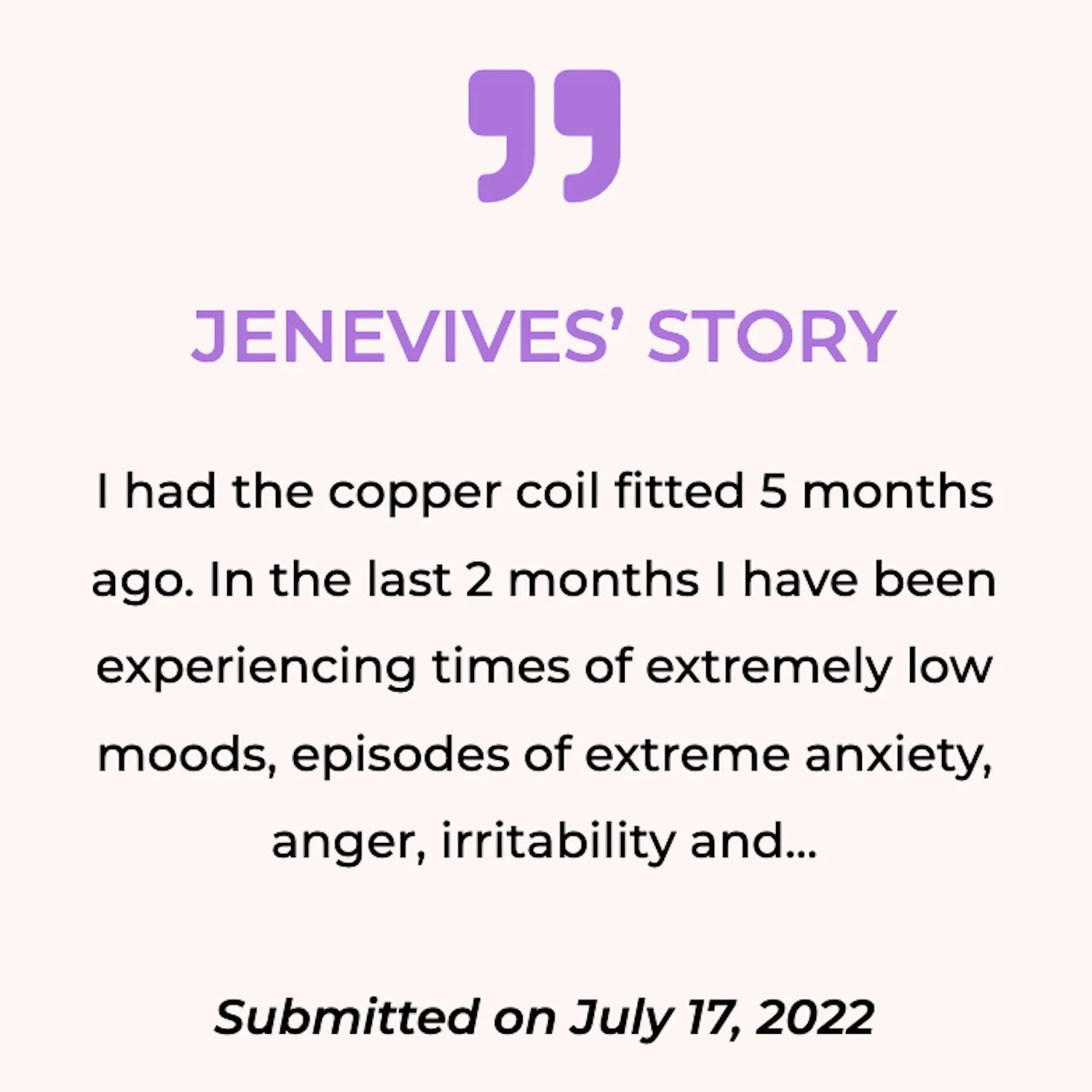








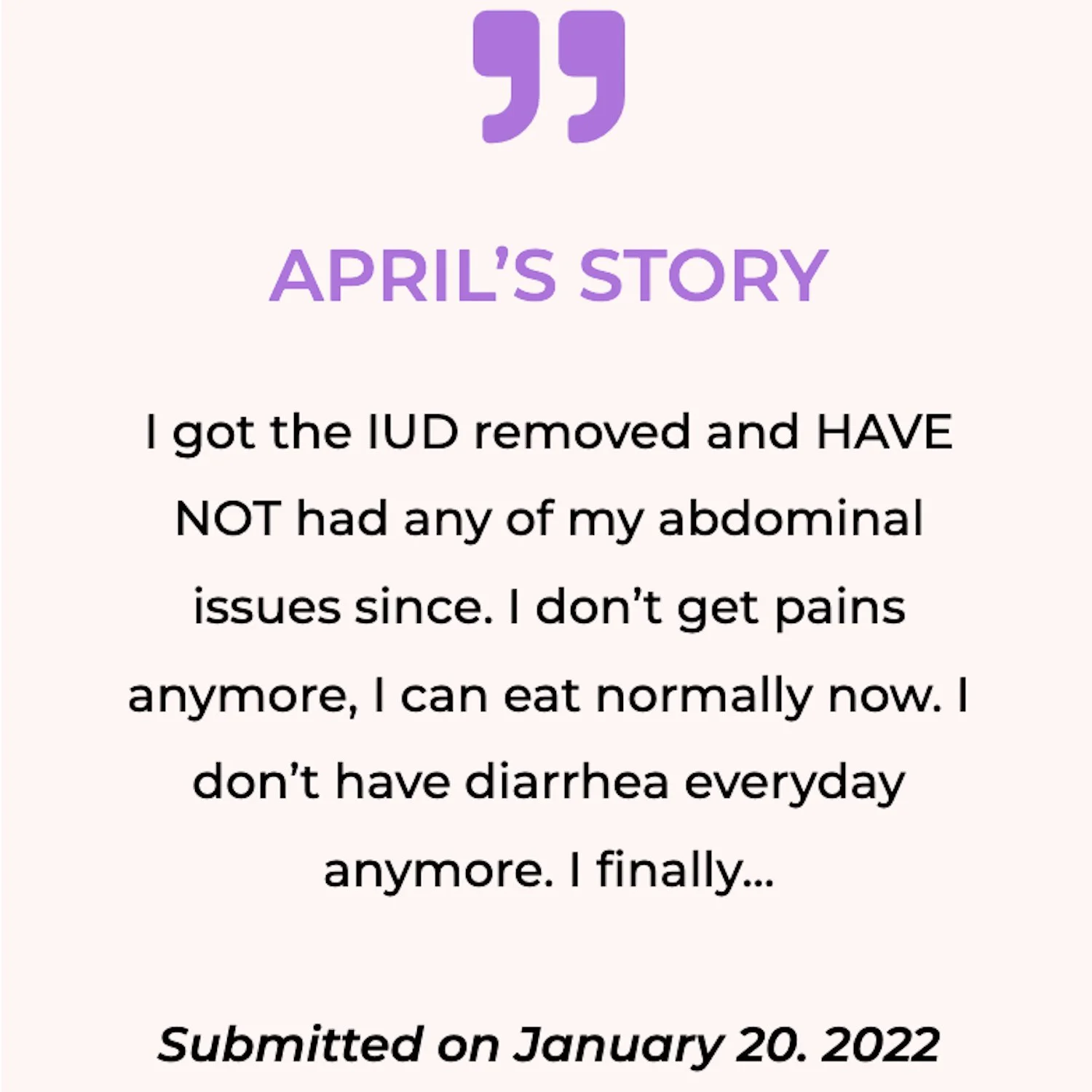



History of IUD
IUD Alert